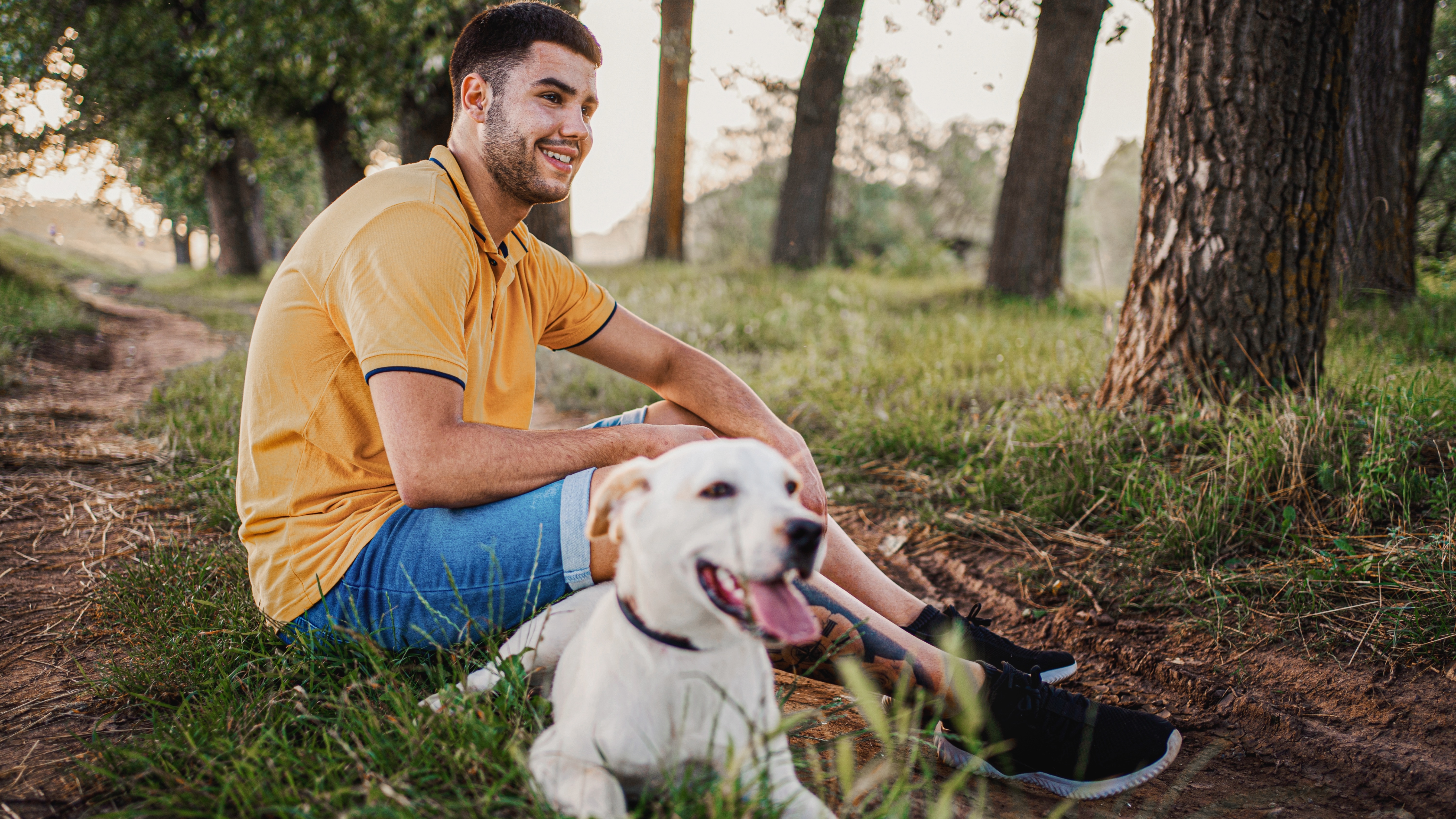Here’s one simple thing you can do if you have a reactive dog (and it’s a game-changer for helping them to relax)
Trainer reveals how to use your daily walk with your dog to help them relax.

Does your dog struggle to settle when you're at home? Do you find that they come back from a walk even more excited than when they set off? Are they prone to displaying anxious, nervous or reactive behaviors? If you answered yes to any of those questions, you're not alone.
When we welcome a canine companion into our family, we often spend a lot of time researching the best long lasting dog chews to feed them and what toys we should buy to provide them with that all important physical and mental enrichment. But what we often don't bargain on is our dog being reactive.
And who knew that the daily walk we take them on could be making things worse rather than better? Certainly not us!
But according to Piper Novick, founder and head trainer at Happy Dogs Training, that's exactly what can happen if we don't think through those daily walks carefully.
To help you do just that, Novick has shared a helpful post to Instagram in which she talks us through the importance of decompression walks — and we're definitely going to give these a try!
A post shared by Happy Dogs Training LLC (@happydogstrainingllc)
A photo posted by on
When it comes to walks, Novick says they can be split into two kinds: Airport-style walks or nature-based walks.
"Airports are huge! You could easily walk 3-4 miles there. But how would you feel afterwards?," Novick asks. "Perhaps drained, overwhelmed or overstimulated? If you're walking with your partner or family, you might start to get cranky and lash out. You'd be desperate to get out of there.
Get the best advice, tips and top tech for your beloved Pets
Now, think about walking 3-4 miles on a quiet nature trail. You might encounter a few other hikers, but for the most part, it's just you. You move at your own pace and listen to birds and the wind. After your walk you might feel fulfilled, content and ready to resume your day."
Now....we know what you're thinking "but I don't walk my dog at the airport!" and yes, that's likely very true. But walking around suburban or city streets simulates that same sort of busy, noisy, chaotic environment.
When we're in built-up areas, we tend to keep our dogs on a short leash and they typically have to move at our pace as opposed to walking at their own. Along the way, they'll encounter a lot of people, traffic, and other dogs barking, all of which can irritate their senses.
If you're wanting to know how to calm a reactive dog, one of the best things you can do is to provide them with access to more nature.
"Walks in nature on a long-line allow your dog to engage in species-specific behaviors, like sniffing," Novick explains. "Nature walks allow your dog to be a dog and relax into their natural rhythm."
We understand that not everyone has access to a lot of wide open spaces or the time to spend hours in nature with their dog — and that's okay. Any decompression walks you can offer can have hugely positive results.
Perhaps you drive to a forest, beach or your favorite hiking trail once or twice a week and let your dog have a calm few hours walking and sniffing. Or maybe you take them to a quiet area of your local park each day where they can have 20 minutes to decompress. Even creating sniff spots in your garden can be hugely beneficial.
Owning a reactive dog is hard, but with time, patience and consistency, you can start to see huge positive changes in your pup's behavior.
And remember, you don't have to go it alone. We highly recommend reaching out to a professional trainer if you feel you and your dog would benefit from some extra support.
EcoKind Gold Yak Himalayan Cheese Dog Treats
$28.95 at Chewy
A healthy and delicious chew stick made with just three ingredients, these treats are odorless, natural, nutritious and highly digestible. Plus, they'll keep your canine companion occupied for hours!

Kathryn is a freelance writer who has been a member of the PetsRadar family since it launched in 2020. Highly experienced in her field, she's driven by a desire to provide pet parents with accurate, timely, and informative content that enables them to provide their fur friends with everything they need to thrive.
Kathryn works closely with vets and trainers to ensure all articles offer the most up-to-date information across a range of pet-related fields, from insights into health and behavior issues to tips on products and training.
When she’s not busy crafting the perfect sentence for her features, buying guides and news pieces, she can be found hanging out with her family (which includes one super sassy cat and a kitten), drinking copious amounts of Jasmine tea and reading all the books.
She has written for a range of publications, including Fit&Well, Top Ten Reviews, LiveScience, Goodto, and Product Hunt.

